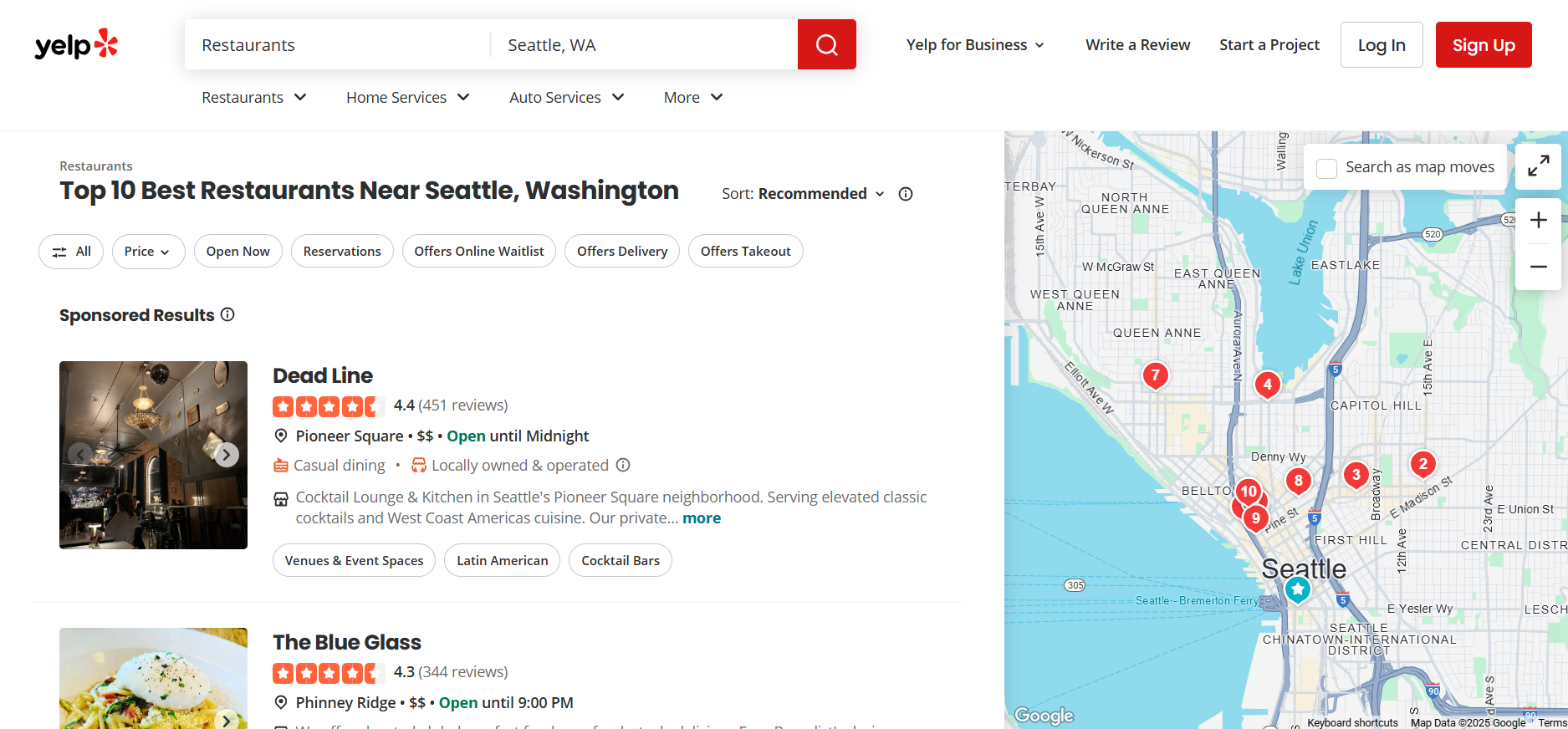Robert Cialdini’s famous book Influence: The Psychology of Persuasion is a staple of any business-oriented must-read list.
You’ve read the concepts before and you’ve probably even seen the full list of principles on numerous occasions.
Reciprocity, Consistency, Social Proof, Liking, Authority, & Scarcity
These principles tend to dictate the way we behave in society, and we can use them to identify and predict human behavior. Today we are going to talk specifically about how these 6 principles of persuasion can be applied for the purpose of increasing your business’ online conversions.
[tweet_box design=”box_4″]#amreading: How The Psychology of Persuasion Applies To Your Business on @CrazyEgg[/tweet_box]
Let’s get started.
1. Reciprocity
[tweet_dis inject=”@crazyegg @jmcmillen89″]The principle of reciprocity says that people don’t like being indebted to others.[/tweet_dis] If they are given something, they feel obligated to reciprocate on some level.
In the 80’s, the Hare Krishna movement utilized this principle by offering flowers to people at airports and then requesting a donation. They found that people who had received a flower donated significantly more often than those who had not received a flower, despite the fact that most of these flowers were immediately dumped in the garbage.
The reciprocity principle has nothing to do with a market value exchange of goods. If the individual receiving a gift sees it as a “payment” for a desired action, they will not feel obligated to reciprocate.
But if the gift is seen simply as a gift, the value or desirability of the gift does not impact the receiving individual’s internal need to reciprocate.
So essentially, this principle says if you give a person something, he/she is more likely to give you something in return.
How To Apply Reciprocity To Your Business
This principle is exceptionally easy to apply to your business. It’s as simple as giving away free stuff and then following that gift with a request.
- Here’s a free digital copy of my book. Thanks for downloading! Would you like to purchase my other book?
- Here’s a free consultation. My paid services can help you here, here, and here.
- Here’s a free product. Recommend us to your friends.
2. Consistency

[tweet_dis inject=”@crazyegg @jmcmillen89″]The principle of consistency says that people want to be consistent in their decision making.[/tweet_dis] As a society, we look down on inconsistency and seek to avoid it at all costs.
As a result, we are far more likely to say yes to a big request if we have already said yes to a smaller, similar request.
For example, in one study cited by Cialdini, two groups of volunteers went door to door, asking homeowners if they’d be willing to display a giant billboard reading “Drive Carefully” in their front lawn.
The first group’s visit was simply a cold call. The second group preceded their visit with an initial visit, requesting that homeowners display a tiny sign on their lawn reading “Be A Safe Driver.”
The second group had 450% higher success rate.
Why? The consistency principal tells us that despite the absurdity of the billboard request, homeowners who had already made a decision to support the safe driving cause felt obligated to remain consistent in that stance.
How To Apply Consistency To Your Business
The best way to apply this principle to your business is to make it ridiculously simple for customers to say yes to your business.
What is the easiest possible yes they can give you? Once you’ve found it, give them an even easier option.
If it’s a $5oo product, create a $50 product that leads into the more expensive product. If it’s a $50 product, create a $5 product. If it’s a $5 product, just go for their email instead.
The point is that your customers are far more likely to say yes to ______ when they’ve given you another yes already. [tweet_dis inject=”@crazyegg @jmcmillen89″]If you’re looking to increase your initial conversion rate, make it as easy as possible to get that first yes.[/tweet_dis]
3. Social Proof
You all know what social proof is. It’s become a modern staple of online marketing. [tweet_dis inject=”@crazyegg @jmcmillen89″]For the uninitiated, the principle of social proof says that people want to do what everyone else is doing.[/tweet_dis]
Is everyone dancing? More people gonna dance. Is everyone watching that video? More people gonna click it. Is everyone buying your product? You can’t stop the people train.
You know what social proof is, but how can you apply it to your business?
How To Apply Social Proof To Your Business
Anyone can fake numbers or fabricate claims, so we’re going to ignore that type of social proof.
Ultimately, it’s not about what’s displayed on your site, it’s about how many people are actually engaging with or interested in your business. For many businesses, the only real way to utilize social proof is through aligning your business with something people are already doing.
In other words, it’s all about hitching yourselves to a downhill snowball.
There are a number of ways to do this, but you’ll probably need to get creative:
- Hitch yourself to an existing trend, like fair trade, organic, donation w/ purchase, etc.
- Get inside a sizable niche audience and create something that solves a unique problem for them.
- Use your copywriting to link broader feedback to your specific product/service.
Hitch yourself to a downhill snowball and then plaster that snowball’s credentials everywhere you can.
That’s social proof.
4. Liking

[tweet_dis inject=”@crazyegg @jmcmillen89″]The principle of liking is the simplest one on the planet. People respond more to people they like.[/tweet_dis]
I like to call this the Obama Principle. Here’s why:
- He was ludicrously unqualified for the job prior to election.
- He made a bunch of end-your-presidency-(usually) type mistakes while in office.
- He backtracked on half the stuff he promised in his election campaigns.
- I completely disagree with him on almost every major political issue.
- And yet, SOMEHOW, I really like this guy.
I mean seriously, I can’t help but like this guy, despite all the things I just listed.
Why is that?
How To Make People Like Your Business
By all accounts, I should not have nice thoughts popping into my mind when I think of our current president.
But I do, and the reasons for that can help your business.
- He says the right things.
- In all honesty, his actions are often contradictory to his nice words, but when the mic is in front of him, he says really, really fantastic stuff, and that makes him likable.
- Don’t underestimate the power of saying the right stuff. The people who didn’t like you anyway won’t buy it, but the people who want to like you will feel better about you once you’ve said the rights stuff.
- He values what I value most.
- I’m a family man. At the end of the day, my fiscal policy opinions are far less important to me than my family. When I look at President Obama, at the end of the day, I see a family man.
- Liking is most powerfully utilized at the core level. [tweet_dis inject=”@crazyegg @jmcmillen89″]What do your customers value? Speak to that and they will love you.[/tweet_dis]
- He comes across as genuine.
- For all the backtracking, when I listen to President Obama speak and discuss policy issues, or anything else for that matter, I feel like he is being genuine. I disagree with most of what he’s saying, but I still feel like he’s being genuine, and that makes me like him.
- Be genuine with your customers. Formality is highly overrated. In certain niches, professionalism is even overrated. Be real and people will like you… especially millennials.
You can read more about “the like factor” here.
5. Authority

The principle of authority says most of us realize we can’t be experts at everything. Our best bet is to rely on the testimony of experts. Accordingly, we allow experts and those considered the “authority” on any given topic to influence us.
In other words, we do what the doctor tells us because he has expertise we don’t have time to acquire. We listen to scientists (also pronounced “politicians” by Republicans) on subjects scientists have invested years in studying. We take financial advice from the people we know have tons of money.
But how can we apply this to our business?
How To Apply Authority To Your Business
There are two primary methods for utilizing authority as a business.
- Build brand authority through repeated expert demonstration.
- Get someone who has already built authority to transfer some of it to your business.
#1 typically takes a long time, but every business should be doing it.
#2, on the other hand, can be utilized extremely quickly. It’s as simple as getting out and hustling.
How so?
There is at this moment, a sizable group of influencers in your industry. The quickest way to get authority is to get one of these influencers to “recommend” your business.
Now, getting a straight-up recommendation is pretty difficult, but I’d imagine, if you were to email every single influencer with a short description of the problem your product solves and the question, “Would you consider this one of the more important problems to solve in this area?”, one of them would email you back at least a “Yes.”
Boom. Your product labels now say, “Get the product that solves what Mr. Famous Guy describes as one of the most important problems in ____ industry.”
That’s a pretty weak example, but the point is you don’t need a direct endorsement. Neil Patel probably wouldn’t send me a direct recommendation for a client, but you can bet I’m going to tell that client I write for Neil Patel (aka this article), and that’s almost as good as a recommendation for them, because there is an implied transfer of authority.
You can utilize the same thing for you business.
6. Scarcity

[tweet_dis inject=”@crazyegg @jmcmillen89″]The principle of scarcity says that if it’s limited, people want it more.[/tweet_dis] If there are fewer people who will get it, “it” is more intriguing to people.
This is why every single marketing course you’ve ever considered buying ends “for good” at 12pm this Friday night, despite the fact that it will reopen in 3 months. It’s why every webinar with theoretically unlimited capacity lies to you with a “limited seats available” claim.
People respond to scarcity, because our instincts are wired that way.
How To Apply Scarcity To Your Business
Most businesses don’t have any natural applications, so you have to force them.
Nearly every big business does this, whether it’s fake discounts at your local retailer or class size limit from your favorite digital marketing “guru.”
The key is to make it believable and as genuine as possible.
The simplest starting point is to just run a limited time discount and see how customers respond.
Conclusion
For a more in-depth look at each of these 6 principles, check out Robert Cialdini’s book, Influence: The Psychology of Persuasion. I promise you, it’s worth the read.







